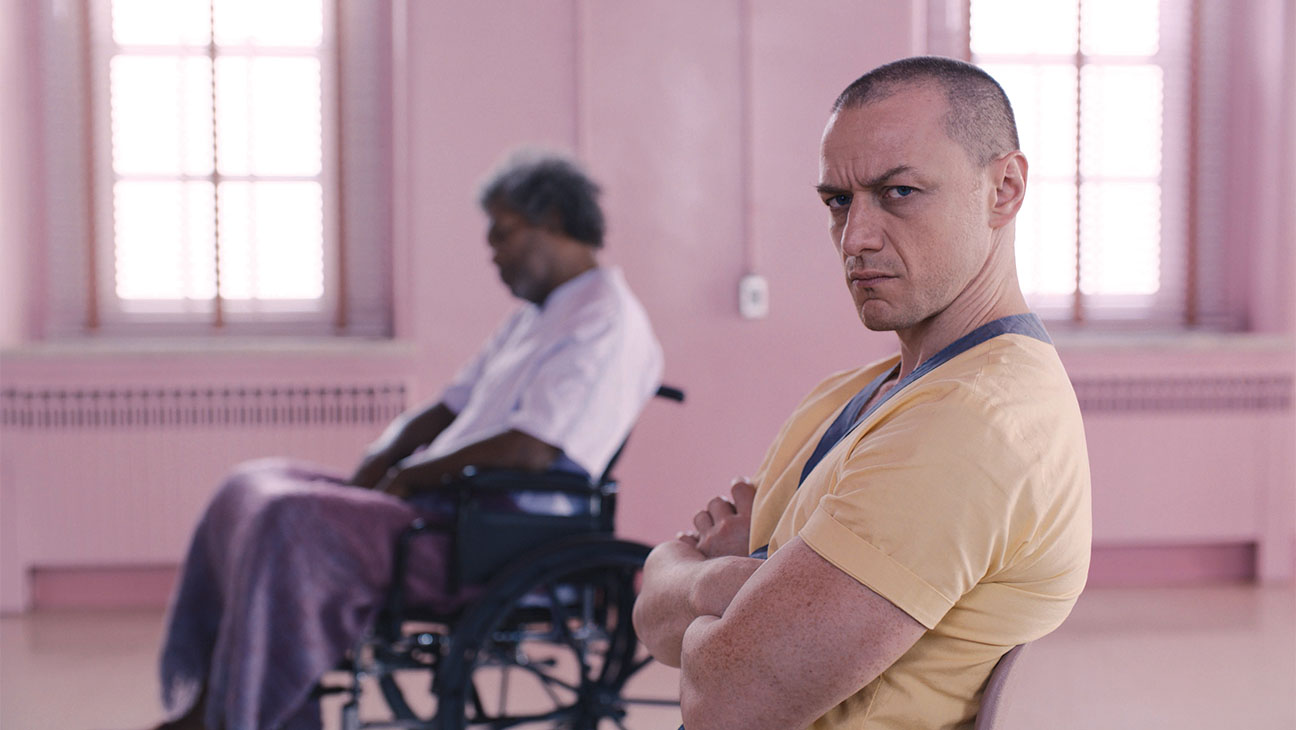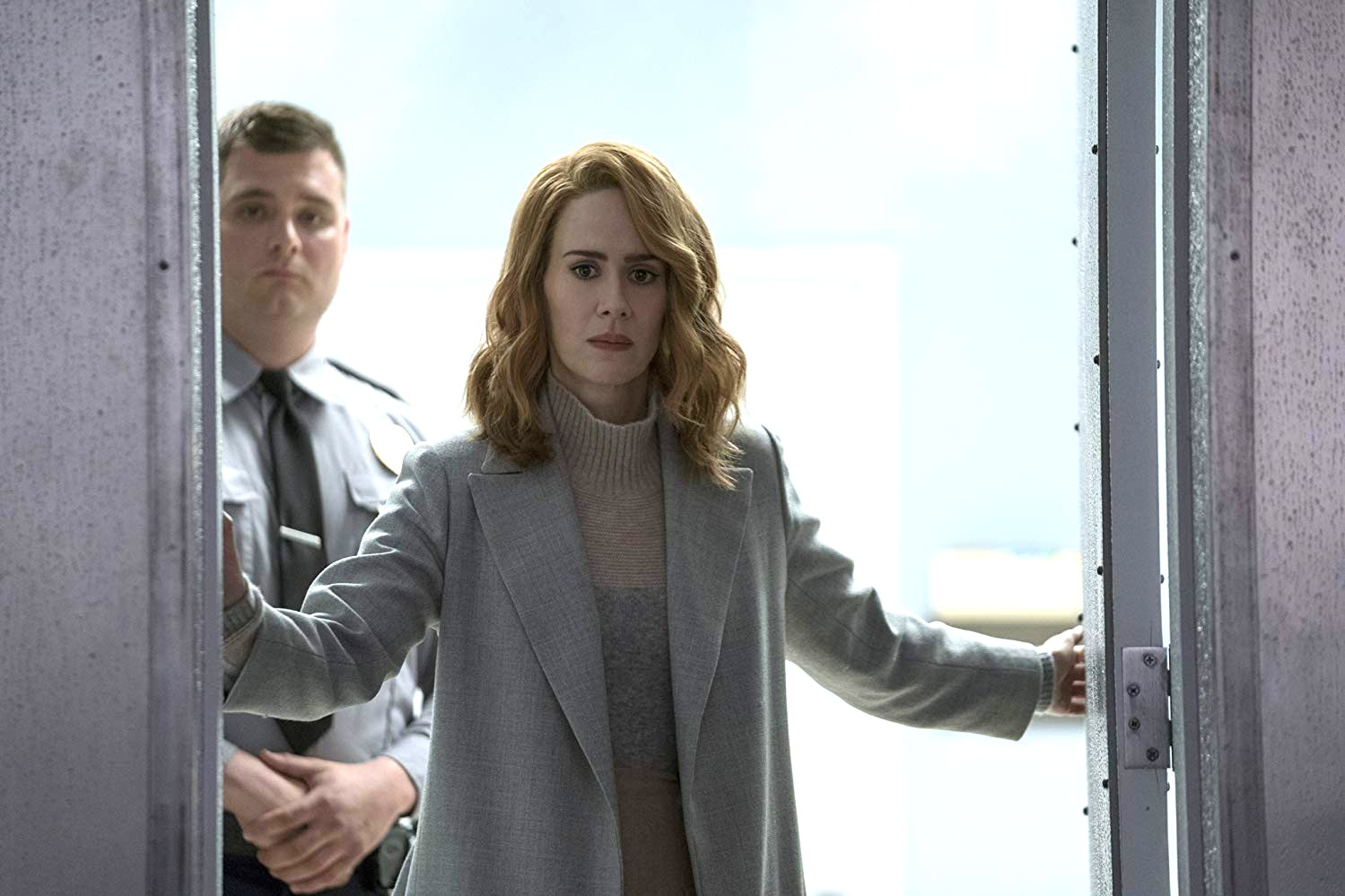By Tom Goulde, First Year, History
The highly anticipated crescendo of Unbreakable (2000) and Split (2016) is underwhelming throughout and leaves the viewer wholly unsatisfied.
Glass starts three weeks after the end of Split where Bruce Willis, reprising his role as David Dunn, hunts down the now notorious Kevin Wendell Crumb (James McAvoy). Both, however, are caught and sent to a mental institute.
There, Dunn reunites with original foe Elijah Price (Samuel L. Jackson). They, along with Crumb, are patients of Dr. Ellie Staple (Sarah Paulson) who is hell bent on proving they are not supernatural.
Youtube / Universal Pictures
The film has sparks of past Shyamalan genius - the intelligent colour design of the group therapy scene a definitive highlight. But the first half of the film seems determined to retell the stories of Unbreakable and Split, rehashing ideas and personalities that the viewer has already spent two movies understanding. Moreover, the second half grows wearisome as it feels dominated by a boring performance by Paulson, whose character continually repeats herself in monologues which spell out the plot for the viewer.
When on screen together, Willis, McAvoy and Jackson seem devoid of chemistry and show that Shyamalan, although innovative in attempting to mesh the two movies together, did not have a clear idea of where to take the finale to this trilogy.
None of the characters seem to progress from their original movies and we learn nothing new throughout the film. The actors are not helped by an odd score, with tense music playing throughout, unnecessarily so in some scenes.

IMDb / Universal Pictures
The film’s shining light is the outstanding individual performance of James McAvoy as Crumb, who suffers from Dissociative Identity Disorder. McAvoy’s ability to seamlessly shift from one personality to another carries much of the first few acts.
Unlike in Split, Crumb’s vicious alter-ego, ‘The Beast’, dominates screen time. McAvoy, however, manages to keep the character suspenseful and frightening. He steals the show as he effortlessly portrays Crumb’s 24 different personalities living inside his body. At times, Shyamalan is dependent on McAvoy to fill the screen as he uses Crumb’s personality changes multiple times in short sequences.
Another disappointing performance in Glass is Anna Taylor-Joy as Casey Cooke. A complex and brilliant character in Split, she becomes the weirdly loving darling of Crumb, despite witnessing him massacre two of her classmates just three weeks prior in the narrative. There is no hint in Split that these two had any sort of personal connection as it seems they do in Glass. Overall, Taylor-Joy is forced back in as a popular character from the previous movie but lets down the viewer with a timid performance.
Right now GLASS has a 36% on Rotten Tomatoes... and for the life of me I can't understand how it's that high. Oh well... that's the subjectivity of film.
— John Campea (@johncampea) January 18, 2019
The movie is reliant on its final scenes where the viewer is witness to a few remarkable and ridiculous twists. Through these twists, Shyamalan destroys some tropes of classic comic book movies, but one twist after another leaves the viewer confused.
Instead of leaving the viewer with a thought-provoking ending, Shyamalan insists on giving the viewer another 15 minutes and one more final twist which ultimately regresses and undermines the point of the film.
After the first hour, Glass feels neverending as Shyamalan introduces multiple absurd flashback scenes that do not add anything to the overall plot. A particularly odd scene comes near the end of the movie where Dr. Staple looks directly at the camera and blandly whispers, ‘What have you done Elijah?’, before proceeding to scream in the middle of the hallway. An unnecessary addition to the film this scene leaves the viewer with a strong distaste for Paulson’s character.

IMDb / Universal Pictures
A film which many had been looking forward to after the success of Unbreakable and Split, Shyamalan’s Eastrail 177 trilogy finale Glass is a major disappointment for all fans. An ambitious piece turns into a clumsily written movie where some clever camera shots cannot help the viewer who yearns for an end which seems to take forever to come.
Featured Image: IMDb / Glass / Universal Pictures
How did Glass compare to the previous two in the trilogy?
Facebook // Epigram Film & TV // Twitter







